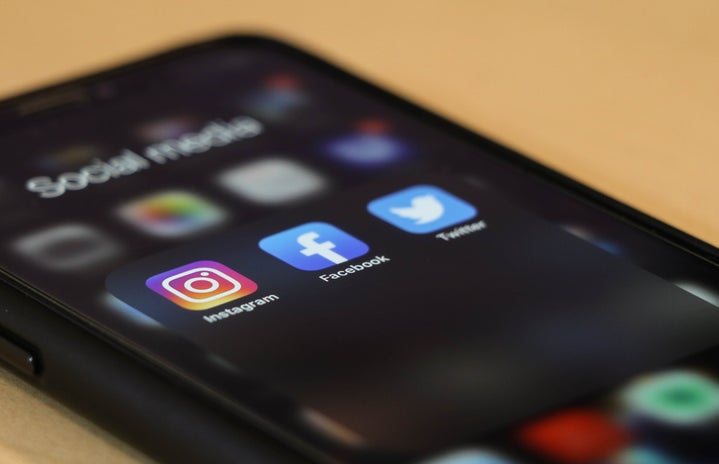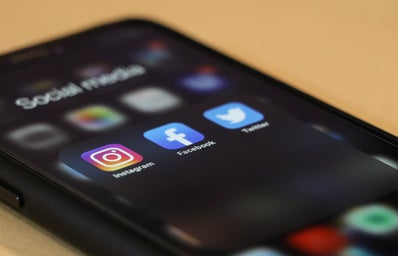Facebook and the man behind the company, Mark Zuckerberg, haven’t been able to evade the critical eye of the news recently. This is due to controversy on data sharing and enacting political division through the algorithmic promotion of anger-inducing posts that receive more engagement compared to posts that promote peace and bipartisanship. While the Facebook company has been receiving public scrutiny, the Metaverse just released its first look to the public. Zuckerberg seems to believe he has fixed (or at least can cover up) his controversy by changing the name and rebranding his company to an all encompassing universe where his media such as Facebook, Instagram, and Oculus are at the center of the new wave of technology. The marketing for this new metaverse by the Silicon Valley big wigs has been sensationalized and spread to the public as the next step into a more connected future, yet it doesn’t even currently exist. Zuckerberg claims that this technology will be mainstream in the next 5-10 years, so what does the future of the interoperability of the internet look like?
Zuckerberg vaguely described that the metaverse is capable of “anything you can imagine,” leading some to believe that this technology is meaningless so far. While the assumption should be grandiose, it doesn’t entail anything specific about the actual power of the technology, proving that the company is unsure of what its capabilities will even be, setting up for deniability of the shareholders in case it does not reach its potential of being the next big technological sensation. What it can be described as is a shared and expansive digital space where people can communicate and interact as they would in person, yet in an interior digitized arena. Ideally, there will be one large social server where all users can not only meet and interact with each other, but have entertainment, gaming, and business affairs as well. Users would utilize an avatar that represents their person like representations that already exist like Bitmoji. The whole metaverse is based in virtual reality, utilizing Zuckerberg’s ownership of the Oculus headset to create a more interactive universe of technology where one is literally sucked into the expansive digital space. The concept of owning, selling, and creating virtual property will also be a new ability in the Metaverse, creating an expansion on the idea of cryptocurrency, NFTs, and making coding more accessible to a wider audience for online creation.
So, Silicon Valley has decided we’re at a place of maturation of the internet where we’re comfortable with making all interaction accessible through wires and code to simulate reality. The question lies in where the relevance for human interaction lies in this new digital space. We are at a place where we are looking for a mirror of reality rather than living in it. Zuckerberg explained we would be able to communicate as fluidly online as in person, yet the question becomes where is the line of technological need and the unnecessary overconsumption of luxury technology? Zuckerberg markets 3D art, outfits for avatars, and extravagant meeting rooms in the Metaverse, yet it all feels like hype and grandeur items that the top one percent like Zuckerberg can throw money at rather than something the average internet user needs or will ever utilize. However, with the marketing of the Metaverse being geared to those in big business who have meetings with those around the world and want to feel more connected, these high profile consumers will depict a desire of luxury for average Americans, even if it is inaccessible to most, especially those unable to buy a $300 VR set and then pay for the fees that are sure to come with the Metaverse. The Metaverse is sure to enable the idea of FOMO for those unable to access it, which is the goal of many social media companies.The Metaverse wants to create a company that is able to produce the most buzz and revenue, sucking in people desiring a life of luxury, and pulling everyone into a digital space and groupthink type of behavior that social media has enabled throughout its history. However, with the space being a reenactment of reality, will the groupthink stop after the virtual reality headset is taken off or will it continue throughout the development of society in a post-digital age, indoctrinating every citizen into the Metaverse lifestyle?
This groupthink is only the beginning of the dystopian similarities to the Metaverse. The largest fear factor is that one company made up of many social media moguls will be controlling the new age of internet. This seems to be a reflection of the industrial revolution where monopolies controlled a full industry. A modern day timeline of monopoly-based, yet digitized industries may prove to be just as dangerous to modern democracy and fair consumerism as business heads controlling physical goods such as steel and oil nearly a century ago was. Zuckerberg also mentioned in the press release that new governance and political policy may have to be created to fit the world of Metaverse. Shaping government policy around an internet phenomenon and the idea of digital police could be a treacherously slippery slope. Could this put media corporations in the same seat as politicians, mixing big, profitable corporate business with public work? Could digital police infringe on our first amendment rights? Could this create a new constitution of what is appropriate in the digital space compared to the outside world? The new virtual economy is another way that business and private industry will start to be mixed with the public networking world. This trade of digital property with digital money is changing the way we are able to look at the economy and the state of business, focusing more on this vague interpretation of what currency can do in a digital space. Will digital currency be taken advantage of by companies? How will the old and new economy be able to merge, or will the digital economy behemoths take over small, real-world companies?
In the face of these concerns, Zuckerberg has pointed out many beneficial possibilities and addressed the arguments that are pit against the creation of the Metaverse. Zuckerberg pointed out that privacy and safety of the Metaverse users will be the top priority in the process of creation of the digital space. While this a sentiment every internet user can appreciate, its irony rings more true than what Zuckerberg is seemingly promising. Amid his own privacy scandals with Facebook and data collecting and sharing, the promise of privacy seems to be shallow and unrealistic due to his previous business affairs. The Metaverse ideal was also created in the face of a pandemic, making communication more accessible when we cannot be connected face to face. However, with the pandemic slowly curving in a more optimistic way, this continued push for realistic online communication instead of in-person contact seems to enable the detached ways we connected during the worst of the pandemic. This could enable humankind to become even more disconnected and follow the trend of detachment that was created out of need, to a time of complete disconnect when we could be interacting with each other safely.
The Uncanny Valley may be another reason this Metaverse is rubbing some the wrong way and revealing futuristic, end of society-esque depictions to the public. The Uncanny Valley is when something inhuman is so realistic and human-like, but not quite human, making it more creepy than interesting. The lifelike avatars, homespace that can be customized to replicate your own, and communication that is almost relatable to that of a party with friends, business meeting with colleagues, or social events with a large crowd are all culprits of the Metaverse appealing to the uncanny valley. They almost reflect real life, but don’t quite fit the bill of reality. The worst part is that it is an unsettling reflection of one’s own life, making it even more tempting to see your life as a digital space, but equally unnerving. The Metaverse is set up as something that is “almost, but not quite,” making it more confusing and threatening due to its vagueness yet extreme ambition to be the world away from the physical world.
The minute I saw this press release, I was reminded of a bit that was more like social commentary from Inside, Bo Burnham’s Netflix comedy special that came out this past spring that I still haven’t been able to stop thinking about. He jokes about how human interaction in person is dangerous and that every human interaction should be contained in the much more “safe and real” interior digital space. He notes how the outside world is now used as a theatrical space and in which one “records and stages” content for use in the digital world, which is seen as more “vital and real” than the real world. While this was staged as a joke, I saw much more reality than humor in this when I researched the Metaverse. The outside world may become obsolete when everything and more is available in this digital universe, making human connection outside of the internet harder to arrange than putting on a headset and staying inside. With the need to record everything in our lives and perform our mundanity to our online audience no matter the size, it has created more anxiety in which Facebook and other companies within the Metaverse have enabled and been under scrutiny for. Metaverse only raises this concern when this social media will soon be an overarching, digital superpower, creating new rules and social normalities that are beyond what the internet has seen yet, thus creating more anxiety and a need to present oneself on the internet. This dystopian universe won’t come with an apocalypse, but with the overabundance of interconnectedness.


